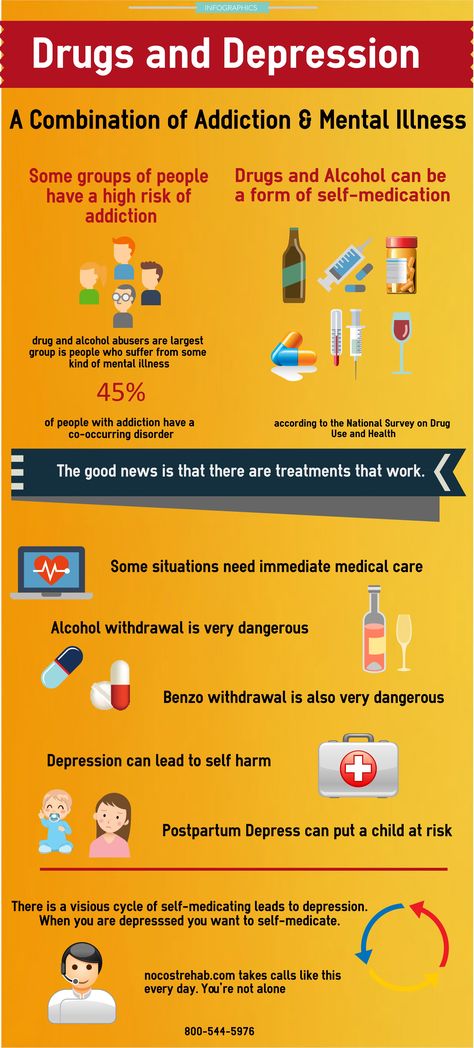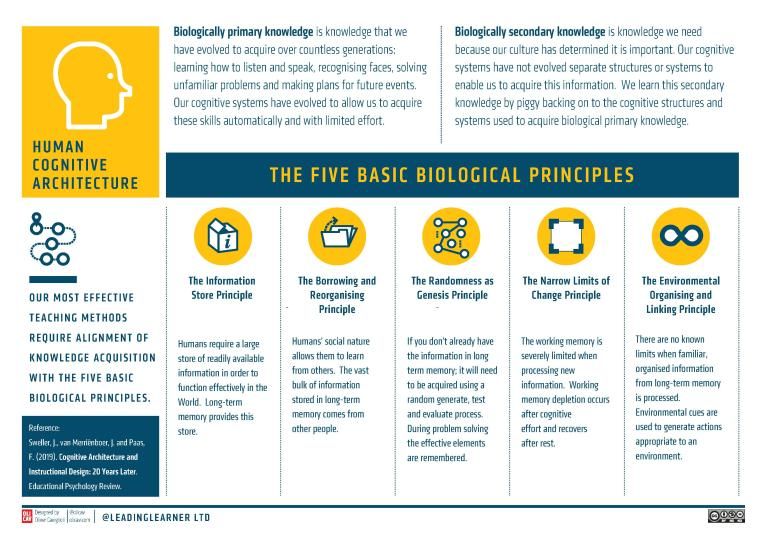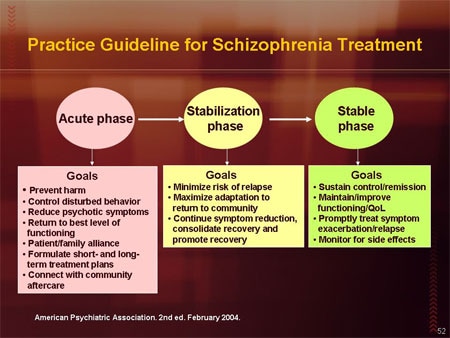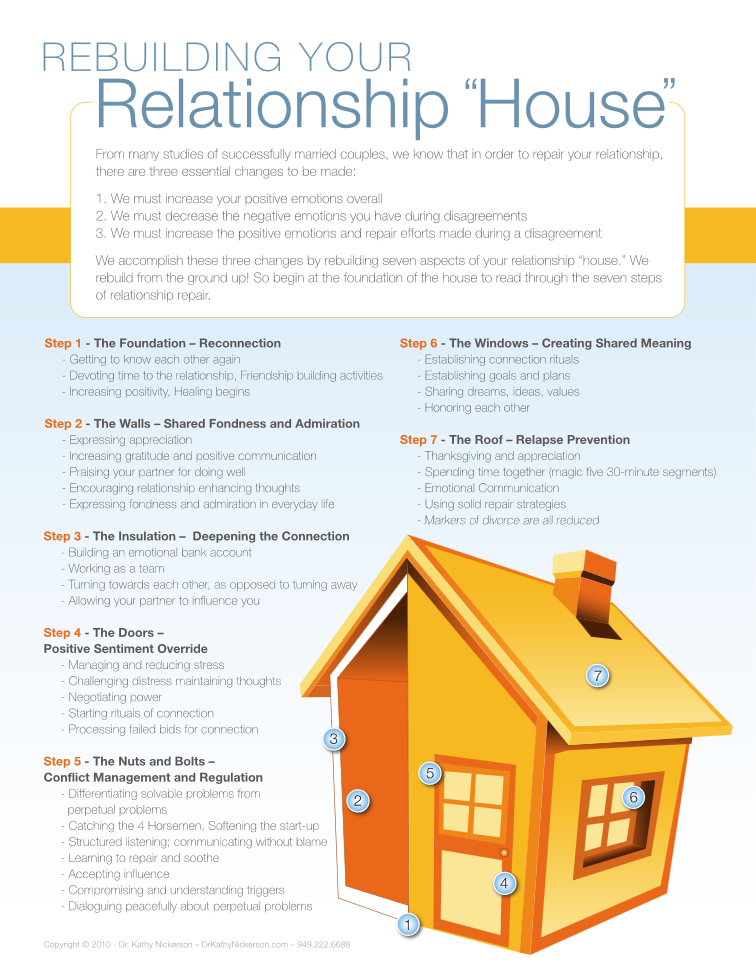Are you shy or introverted
Shy, Introverted, Both, or Neither (and Why Does It Matter)?
By Susan Cain
Bill Gates is quiet and bookish, but apparently unfazed by others’ opinions of him: he’s an introvert, but not shy.
Barbra Streisand has an outgoing, larger than life personality, who also battles with a paralyzing case of stage fright: she’s a shy extrovert.
Shyness and introversion are not the same thing. Shyness is the fear of negative judgment, and introversion is a preference for quiet, minimally stimulating environments. Some psychologists map the two tendencies on vertical and horizontal axes, with the introvert-extrovert spectrum on the horizontal axis and the anxious-stable spectrum on the vertical. With this model, you end up with four quadrants of personality types: calm extroverts, anxious (or impulsive) extroverts, calm introverts, and anxious introverts.
Interestingly, this view of human nature is echoed in ancient Greece. The physicians Hippocrates and Galen famously proposed that our temperaments—and destinies—were a function of bodily fluids. Extra blood made people sanguine (calmly extroverted), yellow bile made them choleric (impulsively extroverted), phlegm made them phlegmatic (calmly introverted), and black bile made them melancholic (anxiously introverted).
But if shyness and introversion are so different, why do we often link them, especially in the popular media?
The most important answer is that there’s a shared bias in our society against both traits. The mental state of a shy extrovert sitting quietly in a business meeting may be very different from that of a calm introvert—the shy person is afraid to speak up, while the introvert is simply overstimulated—but to the outside world, the two appear to be the same, and neither type is welcome. Studies show that we rank fast and frequent talkers as more competent, likable, and even smarter than slow ones.
Galen aside, poets and philosophers throughout history, like John Milton and Arthur Schopenhauer, have associated shyness with introversion. As the anthropologist C. A. Valentine once wrote,
A. Valentine once wrote,
Western cultural traditions include a conception of individual variability which appears to be old, widespread, and persistent. In popular form this is the familiar notion of the man of action, practical man, realist, or sociable person as opposed to the thinker, dreamer, idealist, or shy individual. The most widely used labels associated with this tradition are the type designations extrovert and introvert.
Were these sages flat out wrong? No. Psychologists have found that shyness and introversion do overlap (meaning that many shy people are introverted, and vice versa), though they debate to what degree. There are several reasons for this overlap. For one thing, some people are born with “high-reactive” temperaments that predispose them to both shyness and introversion. Also, a shy person may become more introverted over time; since social life is painful, she is motivated to discover the pleasures of solitude and other minimally social environments. And an introvert may become shy after continually receiving the message that there’s something wrong with him.
And an introvert may become shy after continually receiving the message that there’s something wrong with him.
But shyness and introversion don’t overlap completely, or even predominantly. Sometime ago, I published an op-ed in The New York Times on the value of these two characteristics. It touched a chord in a readership hungry for this message. It quickly became the #1 most e-mailed article, and I received over a thousand heartfelt notes of thanks.
But some letter writers felt that the article conflated introversion with shyness and, as such, had misrepresented them. Though I did make a clear distinction in the piece between the two, these writers were correct that I moved on quickly, perhaps too quickly, to other subjects. I did this because of space constraints—if I had tried to explain everything I just outlined above (and even this post only scratches the surface of a highly complex topic), I would never have gotten to the real point: the importance of shyness and introversion in a society that disdains them.
Still, I understand why non-anxious introverts feel frustrated when people treat them as if they’re shy. It’s inherently annoying to be misunderstood, to be told that you’re something that you’re not. Anyone who has walked down the street deep in thought and been instructed by a stranger to smile—as if he were depressed, rather than mentally engaged—knows how maddening this is.
Also, shyness implies submissiveness. And in a competitive culture that reveres alpha dogs, one-downmanship is probably the most damning trait of all.
Yet, this is where the shy and the introverted, for all their differences, have something profound in common. Neither type is perceived by society as alpha, and this gives both types the vision to see how alpha status is overrated and how our reverence for it blinds us to things that are good, smart, and wise. For very different reasons, shy and introverted people might choose to spend their days in behind-the-scenes or “passive” pursuits like inventing, studying, or holding the hands of the dying. These are not alpha roles, but the people who play them are role models all the same.
These are not alpha roles, but the people who play them are role models all the same.
*The above post previously appeared on Susan Cain’s former blog, The Power of Introverts.
Introvert Myths Personality Shyness Susan Cain
Are you an introvert, socially anxious or shy? How to tell
Quiet people are having their moment.
The world is embracing introverts in a big way, spurred by movements like Susan Cain’s “Quiet Revolution.” It’s happening because the research validates so many of us, said Ellen Hendriksen, a clinical psychologist at Boston University's Center for Anxiety and Related Disorders who writes the Savvy Psychologist columns.
“Our Western culture generally values and celebrates extroverts,” Hendriksen told TODAY.
“So to finally have a message sent that introverts are valuable and necessary, and most of all that nothing is wrong with being quiet, is really empowering to people who thought something was wrong with them.”
But are you actually an introvert, socially anxious or shy? Being introverted and socially anxious are two different things, but shyness is usually a short-hand way of saying social anxiety, Hendriksen said.
Here are more clues:
1. Introversion is born; social anxiety is made
Introversion is a personality trait — a temperament you are born with, Hendriksen noted. Introverts are energized and refueled by being by themselves, or a small group of confidantes.
Social anxiety, on the other hand, is often learned. Life experiences convince you that people are judgmental, and you begin to believe that if you risk doing something, it’ll become obvious that you are incompetent or inadequate, she added.
2. Social anxiety is fueled by avoidance
People with social anxiety won’t show up to the Christmas party. They’ll let their calls go to voice mail or leave a gathering early.
They may also avoid the situation covertly: They’ll show up to the party, but might avoid eye contact, spend most of their time scrolling through their phone or find other ways to not be present.
3. Socially-anxious people can be extroverts
You might get your energy from people, but be afraid of them at the same time. So you really want to go to lunch with your coworkers, but worry they don’t want you there. Or you’d like to host a dinner party, but be afraid you’ll be judged as being inadequate.
So you really want to go to lunch with your coworkers, but worry they don’t want you there. Or you’d like to host a dinner party, but be afraid you’ll be judged as being inadequate.
“That’s actually quite torturous because then you’re uncomfortable when you’re alone and you’re uncomfortable when you’re with people. It’s a no-win situation,” Hendriksen said.
4. Introverts enjoy solitude; people with social anxiety not so much
For the introvert, being alone is necessary and refreshing. It feels good to read a book in a quiet room without any people around.
But if you’re socially anxious and you’re alone in order to avoid a social situation, you may end up feeling regret or disappointment, Hendriksen noted.
“Avoidance might make someone feel like, ‘Phew, I don’t have to talk to people,’” she said. “By not going, it makes you feel less anxious, but it doesn’t make you feel good.”
5. Socially-anxious people are supremely worried about what others think of them
Introverts aren’t concerned about how they present. They can be themselves and not worry they’ll be “revealed” as deficient or inadequate. There’s no performance or perfectionism involved, Hendriksen noted.
They can be themselves and not worry they’ll be “revealed” as deficient or inadequate. There’s no performance or perfectionism involved, Hendriksen noted.
For people with social anxiety, on the other hand, social situations turn into a performance with very high standards. They tell themselves “I must never let a gap occur in a conversation,” “I must always have something interesting to say” or “I am responsible for entertaining this person.”
“You’re spending so much time and energy on impression-management and anxiety-management, there’s not much energy and attention left over to pay attention outwardly, focus on that conversation and what somebody is saying,” Hendriksen said.
6. Socially-anxious people employ ‘safety behaviors’
It’s very common for people with social anxiety to think they have no social skills. They may tell themselves: “I’m always awkward” or “I don’t know what it’s like to have a normal conversation.”
In fact, they’re actually quite good at navigating social situations, Hendriksen noted. They’ll steer the conversation to things they are comfortable talking about or pepper the person they’re talking to with questions to take the attention off themselves.
They’ll steer the conversation to things they are comfortable talking about or pepper the person they’re talking to with questions to take the attention off themselves.
But they also resort to “safety behaviors” — avoiding eye contact, speaking softly, smiling all the time, being very ingratiating — as a way to artificially lower their anxiety.
“All that’s doing is taking up your bandwidth so that there’s not very much left over to actually pay attention to the conversation that you’re having,” Hendriksen said.
How to deal:
If you’re an introvert, you should simply embrace your quiet self. You don’t treat a trait, so there’s no need to change your personality, Hendriksen advised.
However, if social anxiety is standing in the way of living the life you want, then it becomes a problem.
Here are three steps to take:
Slowly put yourself into situations you’re afraid of: Talk to the coworker you always avoid or attend a gathering you’d normally skip. “You don’t have to do a cannon ball into the pool, you can inch in a little bit at a time,” Hendriksen said.
“You don’t have to do a cannon ball into the pool, you can inch in a little bit at a time,” Hendriksen said.
Drop the safety behaviors: Stop avoiding eye contact or speaking very softly. “Trying to suppress anxiety is like trying to keep a beach ball under water. It’s just going to pop up again eventually,” she noted.
Turn your attention outward: “Rather than self-monitoring and focusing inward… listen to the conversation,” Hendriksen advised. Whatever you fear is probably not going to come true. And even if it does, you can handle it.
Follow A. Pawlowski on Facebook, Instagram and Twitter.
This story was originally published in October 2016
Shyness - is it normal? Or should it be treated?
- Sarah Keating
- BBC Future
Image copyright Getty Images
Is shyness programmed into us? Or can you get rid of it? And is it necessary?
Does the thought of having to spend an evening in a big and noisy company make you shudder? Do your fingers get cold and you feel physically ill at the mere thought of having to make a presentation in front of colleagues? You are not alone in this. nine0011
Nigerian Akindele Michael grew up as a shy boy. He spent most of his time at his parents' house, not going out. By the way, Akindele's parents are not shy people at all. He himself believes that he spent his childhood years behind closed doors precisely because of his character. But is he right?
Only partly, says Talia Ely, a professor at King's College London: "We believe that shyness as a character trait and temperamental property is a kind of prerequisite for personality formation. When children begin to communicate with other people, you can easily see the difference in how much they feel comfortable entering into a conversation with an unfamiliar adult. nine0011
According to her, only about 30% of shyness as a character trait is genes. The rest is formed as a response to the environment.
Much of what we know about the genetics of shyness comes from studies that compare the degree of shyness of twins who are perfect genetic copies of each other with dizygotic, non-identical twins who share only half of the genes.
Image copyright, Getty Images
Image caption,Approximately 70% of shyness is acquired, not genetic.
In the last ten years, scientists like Ili began to study DNA to try to find genetic variants that affect a person's personality and mental health.
Each individual combination of genes has only the smallest effect on personality, but if you look at thousands of such combinations, their influence becomes much more noticeable. But even then it cannot be viewed in isolation.
- What can we learn from shy people
- Is it good to praise children?
- BBC experiment: the whole truth about loneliness
- People who can't smile
"It's not just one, ten, or even a hundred genes that play a role here, we have to talk about thousands of genes here," emphasizes Ely. “So if you look at the entire genome from parents, there are hundreds of thousands of genetic variants that are relevant to that trait. ”
So, the environmental (social) environment is almost more important for the development of such traits, she says. And what's even more interesting about genetics is that it pushes us towards those aspects of the environment for which we feel a genetic predisposition.
For example, a shy child is more likely to play alone in the playground and watch others from the side, instead of participating in a group game.
This makes these children feel more comfortable on their own, they get used to it. nine0011
"Genes and environment work together," notes Or. "It's a dynamic system. And so you can always influence it, change it with the help of psychological therapy, which will teach you special techniques."
Image copyright, Getty Images
Image caption,A shy child feels more comfortable being alone
But is shyness such a bad thing?
Chloe Foster, a clinical psychologist at the London Center for Anxiety and Trauma Research, says that shyness itself is a fairly common, common trait. It does not bring problems, unless it develops into social phobia, a painful fear of communication. nine0011
According to Foster, people turn to her for help when they find themselves "starting to avoid a lot of the things they need to do."
This may be an inability to speak in front of co-workers, difficulties in communication, or situations in which it is necessary to evaluate the work of others or be evaluated by others.
As Or says, there may be some evolutionary reason for the development of such a personality trait as shyness.
"It was useful to have in your group both people inclined to explore the outside world, and those who are not inclined to take risks, have a good sense of a possible threat and are better able, for example, to protect children." nine0011
Cognitive behavioral therapy (CBT) is most effective for people with social phobia, she says.
Image copyright, Getty Images
Image caption,One way to calm your nerves when speaking in front of an audience is to focus on the people in the room, rather than the fact that you have to say everything right
CBT helps you identify negative thoughts and realize that certain behaviors that we think help us (such as rehearsing for a speech or avoiding eye contact) can, on the contrary, make us feel even more anxious. nine0011
Sometimes the problem is that people who are afraid of public speaking because of their shyness often demand too much of themselves in a given situation, she explains.
"For example, they may feel that they should never stutter, or that their presentation should be so interesting that others will listen throughout the entire presentation."
Skip the Podcast and continue reading.
Podcast
What was that?
We quickly, simply and clearly explain what happened, why it's important and what's next.
episodes
The End of the Story Podcast
When they are able to reduce tension a little - for example, taking short pauses to catch their breath, this helps to partially relieve anxiety.
The simple technique of focusing on specific people in the audience, on what is happening around you, can also help, rather than listening to yourself and expecting you to stutter and make mistakes. nine0011
Open communication also helps. "The more you are involved in different social situations, the more confident you become," says Ely. "But approach these situations in a new way."
Change the scenario. Ask yourself: what scares you the most? Are you afraid of being boring? Or are you afraid that you will have nothing to say? The more you learn about your worries, the easier it will be to deal with them.
Jessie Sun, a graduate student in personality psychology at the University of California Davis, emphasizes that shyness and self-centeredness are not the same thing. nine0011
Image copyright, Getty Images
Image caption,Western cultures value eye contact, while others, such as Asia, consider it impolite to make eye contact.
As Sun explains, people often feel that being an introvert is about being self-centered, exploring your thoughts. But for psychologists, this is just another dimension of personality, reflecting the degree of openness to experience.
Shy people are indeed often introverts, but they can also be extroverts whose shyness makes it difficult to communicate actively. nine0011
There are also completely unshy introverts who simply prefer to spend time in the company of themselves.
Jesse Sun says that "personality is invariably one of the predictors of happiness, and extraversion is especially often related to a person's overall well-being."
"Extroverts are more likely to experience feelings like enthusiasm, excitement and joy," she says.
But can introverts achieve the same joy just by pretending to be extroverts? nine0011
Sun and her colleagues set up an experiment. They asked people to act like extroverts for a week (which is a very long time for introverts).
"We asked them to be talkative, outgoing, assertive, bold to make contact with other people as often as possible," she says.
It turned out that for those who were already extroverted, this week brought a lot of additional positive emotions - for them, such behavior was natural. nine0011
But introverted people didn't experience positive emotions. Those of them who were pronounced introverts were dominated by negative emotions, and as a result they felt very tired.
Image copyright, Getty Images
Image caption,Introverts don't get any joy out of the typical extrovert behavior - on the contrary, they feel exhausted, exhausted being extroverted for a whole week is too much,” Sun says, “but maybe sometimes they can act like that.” nine0011
So the environment plays a big role in how shy you are. But can it also affect the degree of satisfaction with life, if a person is by nature an introvert?
It is said that self-confidence, extraversion as opposed to introversion, is highly valued in the United States. Meanwhile, studies show that in a number of regions of Asia (including Japan and China), calm and restrained behavior is more valued.
Also different is the attitude towards people who tend to look their interlocutor straight in the eye when talking. In the West, this is generally appreciated, while in other cultures, in Asia and Africa, for example, such behavior is considered disrespectful and even rude. nine0011
And yet, despite all the cultural differences, studies show that extroverts seem to be more satisfied with life - even in countries where introversion is more valued, says Jesse Sun.
But being an introvert is not necessarily a negative experience. Just like being an extrovert is not always a positive experience.
"Don't think of self-centeredness or shyness as a disease to be treated," emphasizes Susan Cain in her book The Quiet. Quiet: The Power of Introverts in a World that Can't Stop Talking - There is no connection between being able to speak and having the best ideas. nine0011
--
You can read the original English version of this article at BBC Future.
Shy child: what to do and how to help him
Young children experience shyness even in a safe environment, according to their parents. A shy person - and even more so a child - is too sensitive to rejection by other people. He prefers to remain in the shadows, not to show himself. The American social psychologist Philip Zimbardo compares this personality trait with voluntary deprivation of liberty. He dedicated the book "The Shy Child", which he co-authored with Shirley Radle, to the phenomenon of shyness. nine0011
Causes of shyness
There is a hypothesis that shyness is a trait that is inherited. But it is quite difficult to accurately identify the factors that influence the formation of a shy personality. It can only be stated with certainty that if parents do not teach their children to easily communicate and get to know different people by their example, the children will grow up shy.
Other triggers for shyness:
1. The development of skills and abilities that a child often cannot master at a young age (for example, reading at the age of two) cause dissatisfaction of parents, and the child withdraws into himself and perceives the love of loved ones as a merit for good behavior.
2. Inability to behave in different situations too early, when adults simply did not teach and explain how and where it is customary to start a conversation, causes a strong fear of any contact in a child prone to shyness. nine0011
3. Control and excessive discipline when the child is simply not given the right to vote.
4. And too different upbringing of girls and boys, when the child does not understand how to communicate with people of the opposite sex.
Shyness at preschool age
The environment in which a shy child is located has a bad effect on his emotional state. The task of parents is to teach him to adjust the world to his own needs instead of passively accepting the negative influence from contacts. Once on his TV show, American journalist Phil Donahue conducted an experiment. Two shy strangers were seated on adjacent chairs facing the auditorium. They were uncomfortable, it was impossible to establish contact, their eyes wandered fearfully around the hall. Everything changed when the strangers' chairs were turned away from the crowd and placed opposite each other. It became noticeably easier for these two to be in the TV studio, and they were able to start getting to know each other. nine0011
Parents can help even the most timid child. Try to have him communicate with strangers
If guests or a repairman are to come, prepare your child in advance: tell about the purpose of the visit, what the person will do at your house. And with the guests who have come, you should not discuss shy behavior, exposing timidity as a disadvantage.
Create situations where the child will have the opportunity to communicate with peers. For example, in a kindergarten, on a playground or in a dance studio. Do not interfere with the way the child meets other children. Try not to dress your shy child in clothes that may be very different from those accepted in the peer group. Support his need to be alone sometimes, but do not specifically isolate him from society. The beginning of friendship in a familiar home environment is much easier for such children. nine0011
Zimbardo insists on active physical development. Confidence in one's own body, developed physical endurance and dexterity help the child feel comfortable and make friends with peers easier. Zimbardo argues that “a child who has an idea of his own physical capabilities, can reasonably judge what he is capable of and what he is not, he will never go crazy. <…> Willingness to take risks characterizes leaders and people who are successful in business.” nine0011
Caregivers exacerbate shyness by perceiving the “goodness” of girls and boys as a positive quality. Active children who are not afraid to show themselves, on the contrary, deserve the censure of adults. But it is also worth understanding that the negative attitude of a significant adult to a calm character makes a reasonable child downtrodden and timid.
How to develop sociability
From an early age, tell your child stories in which reality is intertwined with fantasy. Their main character should be your child. Let the story begin in some familiar place, but embellish reality. Behind the high mountains that no eagle can fly over, beyond the wide seas in which white sharks and sirens swim, lies the city ... Let other family members become participants in the fairy tale, just change their names slightly. A big trouble should happen in the story, which your strong, courageous, quick-witted and beautiful child will eventually solve. Co-writing such stories helps the child to believe in himself, teaches him to be the center of attention and not be afraid to act. nine0011
The second way that develops sociability is when a shy child plays with a younger child. This is proved by an experiment conducted by psychologists at the University of Minnesota. Scientists have come to the conclusion that playing with small children allows a timid child to show and realize his leadership qualities.
Shyness at school
Even self-confident and sociable children depend on the school environment and the teacher's attitude towards them. Shy children need to understand that they are no different from the other guys in the group. Not every teacher knows that it is necessary to pay attention to such children in the right way: to talk about everyday topics, but not touch those that can cause embarrassment. If shyness affects learning, it is better to make contact with such a child after school hours. For example, ask him for help after class. nine0011
It is necessary to assure him in a calm atmosphere that he can ask questions about his studies without being afraid. In children's groups, where the competitive element is reduced to a minimum, and help and attention to each other are in the first place, usually there are no problems even for very timid schoolchildren.
No matter how wise your child’s teacher may be, with the beginning of studies, shyness (if any) becomes the dominant personality trait
how it will be approved by the teacher. Today, school is the place where a lot is demanded of children, criticized for mistakes. The main disadvantage here is that the child behaves like a child. Very often for a first grader, such an environment becomes a shock. Sometimes teachers try to re-educate the quiet and do it in the worst possible way. nine0011
Zimbardo criticizes school arrangements. He claims that the school is determined to produce passive and obedient citizens. The attention of children from the natural state of "here and now" is constantly directed to an uncertain future, for the sake of which one must study well.
A shy child already thinks too much about the consequences of his actions. His slight anxiety quickly develops into fear and anxiety, it is hard for such a child to enjoy the moment. The pleasure of learning is replaced by a system of external rewards for completing someone else's task on someone else's terms, which in no way contributes to the formation of an objective and prosperous attitude towards oneself in the child. nine0011
To succeed in school, parents must always be on the side of their child. Do not use the word "shy" in a conversation with a teacher, but call your child calm, reasonable, attentive. Never agree with the label "lagging behind" and even more so "backward". And always remember that the teacher can make mistakes.
Shy teenager
Shyness can make adolescence the worst period in life. Popularity in school is more important than grades, and it is the lack of popularity that makes the shy teenager suffer even more. Girls are especially subject to suffering, from whom amazing beauty is demanded from an early age. And if a girl does not look like the ideal accepted in the school company, she is in a state of constant dissatisfaction with herself and irritation. Shy teenagers are twice as likely to start drinking and smoking than their more confident peers. They consider alcohol and drugs a means of getting rid of their own timidity. nine0011
Parents can help a teenager, but this will require patience. Your child today can be affectionate and accommodating, and tomorrow forget all persuasions and promises.













